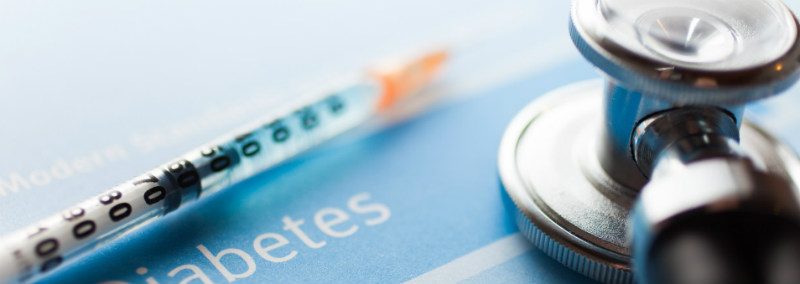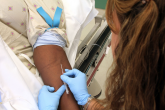
Let’s look at some facts about Diabetes:
- There has been a fourfold increase in the occurrence of diabetes in the 35–54 years age-group, between the 1990s and now.
- Diabetes in Africa is associated with higher complication rates compared to developed countries. Two out of three people with diabetes die from heart disease, kidney failure or stroke. One third to half will go blind and a quarter will undergo amputation.
When dealing with the management of diabetes it is important to take into consideration that lifestyle changes will have to be made. Such changes include diet, exercise and regular doctors’ visits.
Diet
Eating healthy foods is one of the pillars of having a healthy lifestyle; The American Diabetes Association recommends a heart healthy diet and avoiding intake of sugar-sweetened drinks to help prevent diabetes. Sugar-sweetened beverages include soft drinks, malt drinks, fruit drinks, energy and sports drinks, sweet tea, and any other sugary drinks. By eating heart healthy foods and practicing portion control, blood sugar levels can be kept in a normal range.
Heart Healthy foods include:
- Low fat foods – skim milk, use as little oil as possible when cooking*
- Whole grains – whole wheat, oats, millet
- Beans – a great source of protein and fiber
- Fruits,
- Vegetables
- Fish
*Vegetable oil for cooking instead of palm oil
** Use less salt and avoid salty foods
Portion control means having the right amount of food and the right type of food at every meal. The plate below is an example of proper portions of food. Adults should replace the cup of dairy (milk) with water.
It’s difficult to know what to eat and what to avoid eating, a sample meal menu below, shows the kind of foods to incorporate into our diet.
SAMPLE MENU
| BREAKFAST | LUNCH | DINNER |
| Quaker Oats, Sardine /Boiled Egg, Orange
|
Salad with Grilled Chicken
|
Boiled plantain, Stew, Grilled Fish, Steamed vegetables
|
| Moi-moi, Orange or Orange juice
|
Wheat swallow with Edikang ikong or Efo riro
|
Brown Rice with Chicken Stew, Steamed vegetables
|
Sometimes dealing with diabetes can be overwhelming for those recently diagnosed with the disease but by following some of these simple guidelines, complications can be avoided:
- Don’t skip meals and allow yourself to get very hungry
- Don’t eat large meals late at night
- Distract yourself from your desire to eat with something positive.
- Practice saying no to unhealthy foods and big portions.
- Drink Water! Water!! Water!!!
- Keep a record.Keep a food and activity journal.
- Set realistic weight loss goals.Don’t set yourself up for failure.
The other important aspect of the self-management of this disease is to be physically active through regular exercise. For more information on fitness click the link to read more on our fitness post.
Exercise provides tremendous benefits for people with diabetes such as:
- Regular exercise helps you lose weight.
- Regular exercise reduces your risk of developing other chronic diseases.
- Regular exercise helps to reduce the effects of stress on the body by lowering cortisol, the stress hormone.
- Exercise boosts your mood, stamina and sex life.
- Exercise promotes better sleep.
Regular doctors’ visits are important if you have diabetes but understanding how to check your blood sugar is critical for keeping track of how well you’re doing or not doing in managing the diease. Most pharmacies sell simple blood sugar testing devices.
The following guideline shows what to look out for:
Blood Pressure
- Normal blood pressure is 120/80 or less.
- 140/90 and above is considered high blood pressure
Blood Glucose (blood sugar)
Fasting blood sugar should be less than or equal to 100mg/dL (5.6 mmol/L)
- Fasting blood sugar level from 100 to 125 mg/dL (5.6 to 6.9 mmol/L) is prediabetes.
- Fasting blood sugar of 126 mg/dL (7 mmol/L) or higher on two separate tests, confirms diabetes.
- Random blood sugar of 200 mg/dL (11.1 mmol/L) or higher suggests diabetes
| Time of Check | Goal: blood sugar ranges for people without diabetes | Goal: blood sugar ranges for people with diabetes |
| Before breakfast (fasting) | < 100 (5.6) | 70 – 130 (3.9 – 7.3) |
| Before lunch, dinner snack | < 110 (6.1) | 70 – 130 (3.9 – 7.3) |
| Two hours after meals | < 140 (7.8) | < 180 (10) |
| Bedtime | < 120 (6.7) | 90- 150 (5 – 8.4) |
| A1C (also called glycosylated hemoglobin A1c, HbA1c | < 6% | < 7% |
The closer you keep your blood glucose to normal, the more likely you are to prevent diabetes complications such as eye disease, nerve damage, and other problems.
Apart from diet changes and exercise you must learn to stick with your treatment plan. This involves taking medications, monitoring your blood sugar, checking your blood pressure and exercising regularly.
If you slip up, don’t give up – get right back on the wagon
Some other things that can get in the way of diabetes self-management:
- The African mind set of attributing supernatural causes to illness (e.g. witchcraft, spiritual attack, generational curses, etc) impact care seeking, delaying diagnosis and proper treatment.
- Cultural distrust of health providers and “western’ medicine – Do not substitute herbal remedies for medications given by your doctor. Herbal and traditional remedies will not reduce your risk of complications as effectively as weight loss, healthy eating and regular exercise.
- Lack of knowledge and understanding of the disease – educate yourself about your condition, ask your doctor questions, use the internet, and search for help groups that can aid in your knowledge about the disease.
- Africans have a long tradition of turning to God for healing. There is absolutely nothing wrong with that. However it is important that you fight off complications of diabetes through acceptance, determination to make lifestyles changes and compliance with medications.
There is no cure for diabetes presently but adopting a healthy lifestyle not only makes living with diabetes better but also prevents the development of diabetes in those at risk for the disease.
Be inspired to make changes in your lifestyle




Diabetes – Overcoming Barriers To Self-Management PT 2 « The HealthZone
[…] Source: Diabetes – Overcoming Barriers To Self-Management PT 2 […]